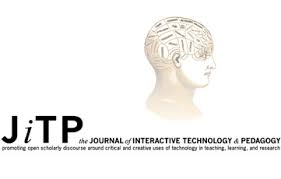Contribution to Journal Article on “The InQ13 POOC: A Participatory Experiment in Open, Collaborative Teaching and Learning”

In 2014, I participated in a unique class-based learning experiment that attempted to intentionally contrasted with the emerging MOOC model. Using a POOC model, or Participatory experiment in Open, Collaborative teaching and learning, students in the course examined political and economic inequality through course material and a community-based project, both of which intentionally incorporated digital technologies for learning, sharing, and collaborating. After sharing reflections on the class with the professors, I was invited to contribute an excerpt highlighting the student experience of the course.
Suggested Citation: Daniels, J, and Gold, M. with Anderson, S. M., Boy, J., Cahill, C., Gieseking, J. J., Gregory, K, Hackett, K., Knoblauch, F. L., Luttrell ,W., Matles, A., Mayorga, E., Negron W., Sherwood, E., Smith, S., Thistlewaite, P., Tucker, Z., (2014). The Inq13 POOC: A participatory experiment in open, collaborative teaching and learning. Journal for Interactive Technology and Pedagogy.
Abstract
This article offers a broad analysis of a POOC (“Participatory Open Online Course”) offered through the Graduate Center, CUNY in 2013. The large collaborative team of instructors, librarians, educational technologists, videographers, students, and project leaders reflects on the goals, aims, successes, and challenges of the experimental learning project. The graduate course, which sought to explore issues of participatory research, inequality and engaged uses of digital technology with and through the New York City neighborhood of East Harlem, set forth a unique model of connected learning that stands in contrast to the popular MOOC (Massive Open Online Course) model.
Source: The InQ13 POOC: A Participatory Experiment in Open, Collaborative Teaching and Learning /
Posted on: June 9, 2014